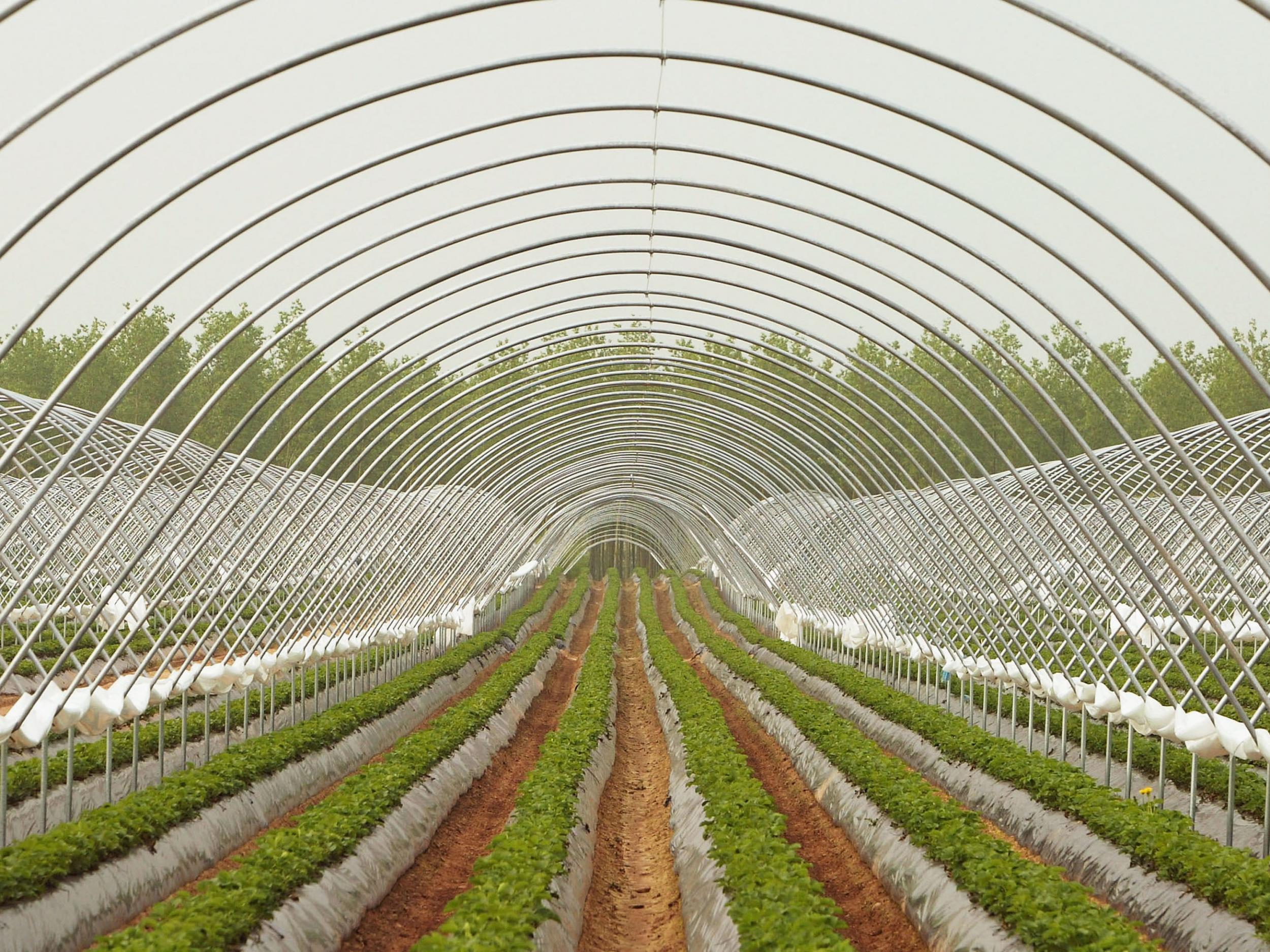UK crops left to rot after drop in EU farm workers in Britain after Brexit referendum
'We simply could not harvest everything,' says farmer James Orr

Your support helps us to tell the story
From reproductive rights to climate change to Big Tech, The Independent is on the ground when the story is developing. Whether it's investigating the financials of Elon Musk's pro-Trump PAC or producing our latest documentary, 'The A Word', which shines a light on the American women fighting for reproductive rights, we know how important it is to parse out the facts from the messaging.
At such a critical moment in US history, we need reporters on the ground. Your donation allows us to keep sending journalists to speak to both sides of the story.
The Independent is trusted by Americans across the entire political spectrum. And unlike many other quality news outlets, we choose not to lock Americans out of our reporting and analysis with paywalls. We believe quality journalism should be available to everyone, paid for by those who can afford it.
Your support makes all the difference.British farmers have been forced to leave thousands of pounds worth of vegetables to rot in their fields, because of a drop in the number of farm workers from the European Union (EU).
James Orr, whose farm outside St Andrews produces potatoes, carrots, parsnips, broccoli, cauliflower, said his farm suffered a 15 per cent drop in the number of workers between August and November.
“We simply could not harvest everything, and as a result we left produce in the field to rot,” he told Scotland’s Sunday Herald newspaper.
Enough broccoli to feed 15,000 people for a year was wasted, he added. Mr Orr’s farm supplies more than 1,000 tones of the vegetable and he estimated he lost between £30,000 and £50,000.
The UK farming industry is heavily dependent on pickers from the EU, particularly those from eastern Europe. Britain’s low unemployment rate and the the seasonal nature of the work makes it difficult to attract domestic workers.
But the fall in the value of sterling against the Euro since the Brexit vote, means the UK has become less attractive to seasonal workers from Romania and Bulgaria.
Farmers also fear that a Brexit deal restricting freedom of movement could leave them with even fewer people to help harvest their crops.
The National Farmers Union (NFU) has surveyed its members in England, Wales and Scotland to discover the effect leaving the EU could have on the industry.
Set to be published in the coming weeks, their report is expected to feature calls for a return of the Seasonal Agricultural Workers’ Scheme (SAWS).
The programme, which the Government ended in 2013, granted permits for thousands of workers from outside the EU to come to the UK on a temporary basis.
NFU Scotland President Andrew Mr McCornick told the Herald access to workers was a key priority for the industry.
“This year, there has been a shortage of between 10 and 20 percent of seasonal workers coming from the EU,” he said.
It was essential a SAWS scheme was introduced in 2018 that would provide work permits for up to 20,000 workers from outside the EU, he added.
Secretary of State for Department of Food, Agriculture and Rural Affairs (Defra) Michael Gove has previously indicated he would consider reinstating the SAWS programme.
Addressing the Countryside Alliance at the Conservative Party conference last October, he said: “I think there might well be a case for looking at a Seasonal Agricultural Workers Scheme that allows people – whether they are from EU nations or indeed beyond – to come here for a limited period in order to augment the existing workforce.”
A Defra spokeswoman said: “We recognise securing a strong agricultural workforce is crucial as we develop a new approach to farming outside the EU.
“The Government has commissioned advice from the Migration Advisory Committee to better understand reliance on EU migrant workers across the wider economy and we will work closely with our food and farming industry to consider their specific needs.”
Join our commenting forum
Join thought-provoking conversations, follow other Independent readers and see their replies
Comments